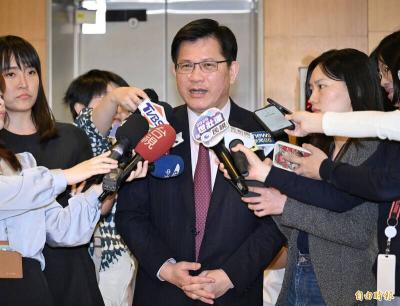Critics of the government yesterday told a forum that the government’s proposed economic cooperation framework agreement (ECFA) with China was tantamount to a “one China market.”
Kenneth Lin (林向愷), an economics professor at National Taiwan University, said Taiwan would lose its right to make decisions about its survival, development and sovereignty if it signed an ECFA with China, as the ultimate goal of such an agreement would be to remove the barriers to the movement of capital, products, personnel and technology between the two sides of the Taiwan Strait under the framework of a “one-China market.”
Although the ECFA with China could benefit some industries, the government has not told the public the impact it would have on other industries and on sovereignty, he told the forum yesterday hosted by the Taiwan Shadow Government think tank founded by former Democratic Progressive Party (DPP) chairman Frank Hsieh (謝長廷).
Former minister of finance and former Taiwan permanent representative to the WTO Yen Ching-chang (顏慶章) said an ECFA would be little more than a “letter of intent” with a timetable. It would be a framework for achieving a substantial free-trade agreement (FTA), but would lack any content, he said.
Yen said an ECFA would be a totally “void” pact with no immediate impact on Taiwan’s economy, contrary to what Ma has portrayed, as mutually beneficial measures such as the opening of Taiwan’s market would be necessary to achieve a substantial FTA.
Former vice premier Wu Rong-yi (吳榮義) told the forum it was strange that while China blocks Taiwan from signing any FTAs or similar pacts with other countries, it wants to ink one with Taiwan.
“The roads are all blocked and there is only one path left, but it leads to a trap,” Wu said, adding that there must be some political motivation behind China’s wish to sign an economic agreement with Taiwan.
Also at the forum, Hsieh said: “President Ma promised the economic treaty with China would not involve issues of sovereignty, but Ma has broken his promises many times on various policies before. Are we to believe his word again and risk the country’s existence?”
Hsieh called on the Ma administration to tell the people the truth about the proposed economic pact and to craft a long-term economic development strategy rather than focus on short-term bailout programs.
“Any economic agreement signed between two countries must be mutually beneficial if it is to last,” Hsieh said. “Can this really be something that is so heavily in favor of Taiwan? There must be other motives behind this.”
There should be more transparent discussion on the possibility of signing an ECFA with China, Hsieh said, urging the government not to rush into a decision on the proposal. Public consensus might be more attainable if there are in-depth debates on the issue and on Taiwan’s best interests in the situation, Hsieh said.

Taiwan would welcome the return of Honduras as a diplomatic ally if its next president decides to make such a move, Minister of Foreign Affairs Lin Chia-lung (林佳龍) said yesterday. “Of course, we would welcome Honduras if they want to restore diplomatic ties with Taiwan after their elections,” Lin said at a meeting of the legislature’s Foreign Affairs and National Defense Committee, when asked to comment on statements made by two of the three Honduran presidential candidates during the presidential campaign in the Central American country. Taiwan is paying close attention to the region as a whole in the wake of a

Chinese Nationalist Party (KMT) Chairman Eric Chu (朱立倫), spokeswoman Yang Chih-yu (楊智伃) and Legislator Hsieh Lung-chieh (謝龍介) would be summoned by police for questioning for leading an illegal assembly on Thursday evening last week, Minister of the Interior Liu Shyh-fang (劉世芳) said today. The three KMT officials led an assembly outside the Taipei City Prosecutors’ Office, a restricted area where public assembly is not allowed, protesting the questioning of several KMT staff and searches of KMT headquarters and offices in a recall petition forgery case. Chu, Yang and Hsieh are all suspected of contravening the Assembly and Parade Act (集會遊行法) by holding

President William Lai (賴清德) has appointed former vice president Chen Chien-jen (陳建仁) to attend the late Pope Francis’ funeral at the Vatican City on Saturday on his behalf, the Ministry of Foreign Affairs said today. The Holy See announced Francis’ funeral would take place on Saturday at 10am in St Peter’s Square. The ministry expressed condolences over Francis’ passing and said that Chen would represent Taiwan at the funeral and offer condolences in person. Taiwan and the Vatican have a long-standing and close diplomatic relationship, the ministry said. Both sides agreed to have Chen represent Taiwan at the funeral, given his Catholic identity and

Taiwan would welcome the return of Honduras as a diplomatic ally if the next president of that country decides to make such a move, Minister of Foreign Affairs Lin Chia-lung (林佳龍) said today. “We would welcome Honduras if they want to restore diplomatic ties with Taiwan after their elections,” Lin said during a legislative hearing. At the same time, Taiwan is paying close attention to the Central American region as a whole, in the wake of a visit there earlier this year by US Secretary of State Marco Rubio, Lin said. Rubio visited Panama, El Salvador, Costa Rica and Guatemala, during which he